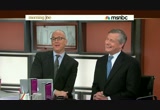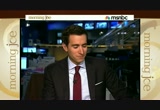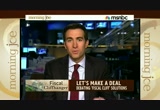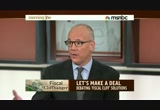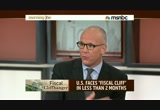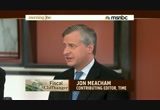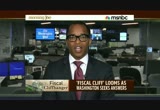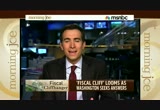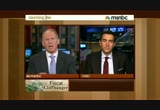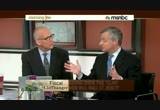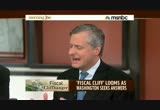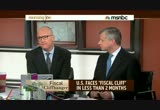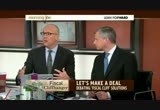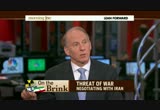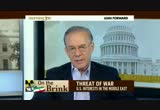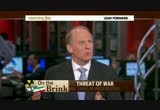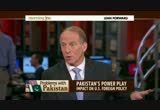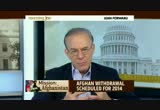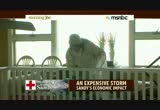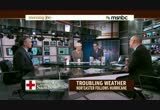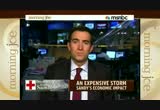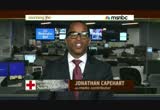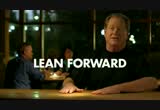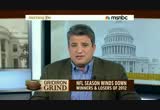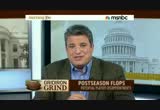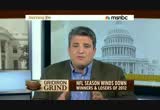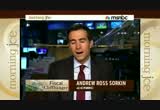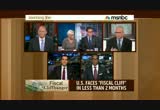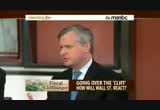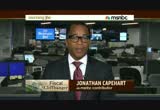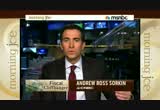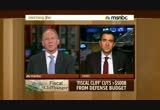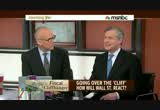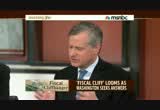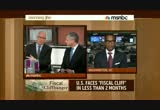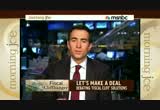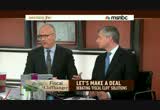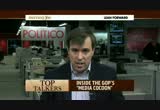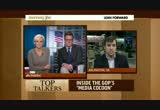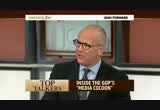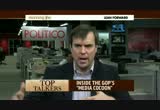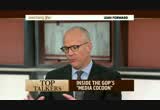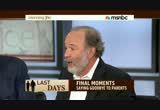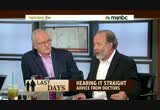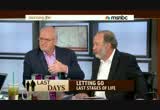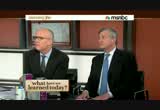tv Morning Joe MSNBC November 23, 2012 3:00am-5:00am PST
3:00 am
♪ the lexus december to remember sales event is on, offering some of our best values of the year. this is the pursuit of perfection. good morning. it's friday, november 23rd. >> i'm stuffed. can i just say, i'm stuffed? are you stuffed? >> the day after thanksgiving. i'm stuffed. probably not as stuffed as you. >> what a football game. man. >> geez. welcome to "morning joe." we hope everyone had a great thanksgiving. joining us this morning, the national affairs editor for new york magazine and msnbc political analyst, john heilemann. >> he's great. >> boy, what a thanksgiving i had. you can't even imagine. >> i don't want to know. >> did anyone come to your
3:01 am
thanksgiving? >> what? huh? >> jon meacham. >> home alone. >> he was home alone again. >> pulitzer perurize-winning historian, jon meacham, author of "jefferson: the art of power." get a copy. >> i gave everybody in my family a book, a thomas jefferson book, with cranberry sauce imported from chattanooga with a bow. >> that's great. >> i actually need a new one because i spilled the yams all over mine. >> also with us, the president of the council on foreign relations, richard haass. nice to have you with us once again. the cohost of cnbc "squawk box," andrew ross sorkin. >> school is off today, so it worked out. >> you beat us to the punch! >> he's preempting. >> very nicely. i'm in a bit of a food coma.
3:02 am
i need to admit that. i may be slow. >> well done. and from washington, from "the washington post" newsroom, pulitzer prize-winning editorial writer for "the washington post," jonathan capehart. >> hello. i spent a long time on the road driving back from south hampton, but i made it in time. >> thank goodness. since andrew ross sorkin is adopting the bush policy of preemption, let's begin with him. >> okay. very good. >> what's at stake, obviously, a lot of posturing over the past couple of weeks since the election about the fiscal cliff. what is at stake here for both sides? what happens if they don't get a deal? >> well, look. i think what happens to both sides, it's not even what happens to both sides, what happens to us which is the collective, right? it's what happens to the country which is 4% of gdp disappears overnight. and that's what this is all about. by the way, it's not just about what happens january 1st or
3:03 am
11:59 the day before january 1st. it's already starting to impact the economy. whether it impacts consumers -- and we'll find out today, by the way, in terms of thanksgiving and what's that meant, whether consumers are coming out or not -- but thoorz the bigger issue that manufacturing has already started to slow down. people are starting to worry. it may end up in the economic numbers already, just the fact that we're having this debate. and then come january 1st, do we go over? what does that mean? is it the fiscal cliff? or does it look like the fiscal bungee cord? that's what some people are calling it. we go over for two weeks and then we snap back and get a deal and what does that deal look like? >> a lot of positive talk following the election. even bill kristol talking about let's feel free to raise taxes if it's part of a bigger deal. a lot of elections don't have consequences, midterm elections. this was supposed to be a status quo election. but something happened here. i think the fever is starting to break. >> absolutely. you're going to see it, i think,
3:04 am
on immigration reform, and i think you're going to see it on spending and taxation. and you don't have to effect or change basic tax rates. as you know, there's all sorts of things you can do on so-called tax expenditure dealing with home mortgage deductions, dealing with state and local taxes. also there's things obviously on the spending side, entitlements and domestic spending, this isn't that hard. this is, if you will, a mini-package. this isn't necessarily on the scale of simpson-bowles. it doesn't need to be. this ought to be doable. >> john heilemann, obviously both sides have to give. everyone's been saying that. there needs to be room for compromise, figure out how to get there. how does a deal look? is there a possibility of a deal without extending the bush tax cuts for people who make under $250,000 only? is that possible? >> well, i think the president wants a grand bargain. he wants to go back to the negotiations he had with john boehner in the summer, and they've done a lot of work. those guys got pretty close in
3:05 am
the summer of 2011. now the president has more leverage. the tea party part of the house republican caucus is in a less powerful position and less fired up. we're pretty far away from the 2010 elections now. john boehner is trying to exercise some kind of power and tell those people that he needs them to stay in line. i think, you know, the tax thing, i keep trying to -- to me it seems obvious what's going to happen. that the bush tax cuts are all going to expire on january 1st. and then they're going to reinstitute the ones for people making under $250,000 a year. republicans will not vote to do a partial thing, right? because they regard that as raising taxes. they won't vote for it. we'll go past january 1st. then when democrats offer to reinstate the tax cuts for those making $250,000 a year, republicans will vote for that. that's another tax cut. it seems to me this solves the republican problem, which is that we won't vote to raise rates. that's how they end up in the place where we end up with what the president and democrats want
3:06 am
with republicans having not had to violate any norquist pledges. they don't vote for a partial bill first, and then they vote for the reinstitution after. >> the president passed on it before. do you see a scenario, joe, in which the president passes on taxes for the rich? >> no, i don't. >> i don't either. >> i don't think so. >> i just don't see it. >> how can he? >> when you have people like bill kristol coming the president's way. there is a divide in the republican party. and there has been a divide for some time. on sort of the wall street republicans and the main street republicans. the republicans that came in in '94, jon meacham, were like me, they were more populist/conservative than conservative -- you know, sort of wall street conservative. there are a lot of conservatives in middle america that aren't going to be crying if people making a couple million dollars are paying more taxes. that's just the reality. >> no, i think that's right. i think to go to the question about whether the president will do it, this is a little like george w. bush in 2001 when he
3:07 am
actually cut the taxes and sort of the chattering class was sort of oh, my god, i can't believe this is happening. and he said, you know, i ran on this. i don't know if you were listening. >> right. >> and same with obama. the one thing that came out of this campaign is a concrete promise was this part of the tax package. >> jonathan capehart, we were saying throughout the entire campaign, this was a seinfeld campaign. but a campaign about nothing. except -- and we always have the caveat -- mitt romney said he was going to cut taxes even if he couldn't pay for him, and the president said he was going to raise taxes on the rich. the president could not have been more clear about that. >> right. right. that was not an unknown. and people went into the voting booth, voted for the president, and in exit polls, they said overwhelmingly that they favored what the president was going -- or now is going to try to do. you know, to add on to something that john heilemann said in terms of speaker boehner now trying to exert more control
3:08 am
over his raucous caucus there in the house, the other thing that's going to happen is that the president is basically going to refuse to be held hostage in washington trying to negotiate a deal behind closed doors. he's going to leave washington and take the case to the people to get the american people behind him, get support and have them lend their -- send their voices to congress to let them know that they want a deal, whether it's the deal that the president is espousing now or one that they come to an agreement with -- come to agreement over later, but he's trying to get the american people involved in the same way he did with the payroll tax cut fight a year ago. >> i think there's a larger question here at least we're dancing around which is does he have a mandate on 250 and above and getting to a tax rate of 39.6, or are we talking about 35 and just raising the effective tax rate on the wealthy? that seems to be what this whole conversation is really about. but we don't really know where it's ultimately going to land.
3:09 am
and by the way, does it matter which way it lands politically for the president and politically for the republicans in the house? >> richard haass. >> i think the big question is also whether this happens smoothly or whether first there's a failure to get over the fiscal cliff, there's a big breakdown in washington, the markets tank and almost like the t.a.r.p., then the week after or day after something comes together. and when it does come together, it will be good because what it will introduce is this needed predictability. what the markets are crying out for is some sense of tell us what the context is. if you're american business, you're sitting with $2.5 trillion on your balance sheets. tell us the context and we can invest and spend. ultimately when these guys get a deal, it will waive the way to restorative american economics. >> do you think we get a big enough deal or a small deal that gets us past january 1st and then we're into the soup into fall of 2013? >> that's the right question, whether we get a mini-deal. if you get a mini-deal, a lot of the same issues will have to be
3:10 am
dealt with that you'd have to deal with in a $4 trillion deal. if you have the politics to do this, i would think you have the politics to get a bigger deal. >> simpson-bowles, $4 trillion, that's still a small deal. when you look at the fact that over the past four years, we've had deaf silts far exceeding $4 trillion. and as you move forward, the deficits are going to go even higher. >> oh, yeah. even a maximum deal, i think, all of us would agree is not going to happen. simpson-bowles is not going to go through. even that would not be commensurate with the question. and i think what exacerbates this is every day that passes, the president works on one kind of clock. and everybody else invested in the system works on a different one. the president's clock is now just ticking toward history. everybody else is ticking toward the next election. both in '14 and in '16. and the human reality of politics is that as he starts to think more long term, everybody else is going to be imprisoned,
3:11 am
if you will, or trapped, constrained by having to go back and getting re-elected. >> let me stop you for one second. you're a historian. i am a politician by trade when it comes to this stuff. and i can tell you the clock is actually, in my opinion, the clock is actually ticking fastest for the president. because at some point, the republicans are going to pick themselves up off the ground, and they're going to say, wait a second. i got 78% in my district by saying i would never vote to raise taxes. john boehner, sorry, you had me for a week or two. so i understand exactly what you're saying. too many commentators, myself included, we think there's a big election result and that all these branches move in unison. these republicans, at some point, two, three weeks from now are going to be rising up. >> you just said what i wanted to say better. i think that's exactly right. everybody else in the system has a different kind of clock than obama. and if the president -- every
3:12 am
day that passes, the president loses, i think, the potential for leverage. >> so we agree. >> we agree. >> i disagree about one thing. i think there's a reasonably good chance that we'll have a big deal. by the time we get to the spring, we might not have that big deal between now and january 1st, but whether we would have a small deal as paving the way toward the big deal or whether we kick the can in such a way as to give us enough time to get to a big deal, i their there's a reasonable chance we'll look up in march or april and have something like they were trying to make a deal on in the summer of 2011. >> jonathan. >> hey, john, do you think that if we get a big deal, is that because john boehner was able to get control of his house caucus and make them pass it? >> no. >> or not? >> no, i think there's a good chance that that deal looks like an all-democrat plus part of the republican caucus, the reasonable -- the more reasonable part of -- boehner and a decent chunk of the republican caucus with the part that he can't control voting against it but that not
3:13 am
mattering. >> let me define reasonable, jonathan, by those republicans who think they may be punished at the polls if they don't go along with a deal, there will be, of course, a lot of conservatives that won't go along with the deal to raise taxes much like there was back in the 1990s, but newt gingrich could always cobble together deals with bill clinton, the democratic caucus and enough republicans to get him over the finish line. >> republicans should relax, whether they get a deal now or in the spring, the economy will grow, and that will help their chances for re-election. people won't worry so much about tax increases if this economy is growing at the historic rate of 3%, 3.5%. people ought to relax a little bit on some of the details. >> and mika, we've seen it, people want to see washington work. >> they do. >> they want them to get the deal done. >> andrew ross sorkin explain the dynamics of wall street. >> the problem is the longer we wait, the more it's impacting the economy. if you're a company considering tech spending or hiring new people, we still have 1 proit$1
3:14 am
trillion sitting on the sideline. it's uncertainty. what john was saying, this idea if you do get the can kicked, that actually represents a problem both because it creates uncertainty for whatever period that is, but i would also argue -- and i agree with joe -- that the farther out you get from today, the easier it's going to be for the republicans in the house to say, you know what? i'm not doing this anymore. and then i think you're going to get up to, you know, a real cliff. and that's the real, real danger. >> if i'm the president, i don't want these republicans to go home. for holiday break. without a deal. i understand your scenario. it makes perfect sense. but i want to get the deal done before another year. >> maybe the deal looks like a framework deal because there's not enough time to hash out comprehensive tax reform. but you get a framework on what revenues will be on some basic
3:15 am
principles that get you to where you're going. but i want to ask andrew one question because we started this whole discussion with the notion of the fiscal cliff, right? you know that there are people on the left and people on the right who are both saying, there is no cliff. what are you talking about? what cliff? this is no big deal. so explain to us actually -- you talked about the gdp impacted at the very top of this block. what's the argument for hey, don't worry about this, this cliff isn't for real, and that's the counterargument to that? >> the argument for this not being a cliff is to say, you know, if we go over it or january 1st arrives, guess what? we have certainty. we have certainty that taxes are going to go up, that the sequester is going to be there, and some people would argue, paul krugman would say look, it's there, it's in stone. let it ride. and to the extent that that gives, by the way, the democrats some support to continue making some of these arguments, that's a good thing. on the republican side, it's the austerity argument. it's the argument that says you know what? we have to get our house in
3:16 am
order. get your house in order overnight immediately. it may impact the economy in the short term, but long term, there are people out there that would argue it's the better course. i'm not sure that's the case because i think the immediate impact politically and economically is too painful. >> all right. still ahead, one of the most pressing foreign policy decisions facing president obama in his second term. david ignatius joins us. and recovery efforts are still under way after hundreds of thousands of americans were devastated by the impact of hurricane sandy. nbc meteorologist bill karins joins us with the latest. you're watching "morning joe" brewed by starbucks.
3:19 am
3:20 am
heilemann still at the table. >> so david, what challenges face not only the president but the country in the coming year? >> well, a lot of them, joe. it's as if president obama, sometime last summer, put a sign on the white house lawn saying, closed for business until after the election. well, now we're well after the election, and the problems that have been waiting are stacked up. and i'd start with iran. there have been quiet conversations going on all fall with the people who purport to be intermediaries, emissaries for the iranian leadership sketching possible deals that could be made to resolve the nuclear issue. president obama and his advisers are going to have to decide over the next, i'd say, month or so how serious those deals are. i think it's possible in addition to a big meeting of the so-called p-5 plus one negotiating group and its major powers including the u.s. plus iran that there may be possibly secret bilateral explorations between u.s. and iranian
3:21 am
representative just to see what kind of deal is possible. what kind of deal with satisfy the u.s. and israel that iran won't have a bomb and won't have the capability to break out to having one. so that's got to be resolved early in the new year or the u.s. warnings that unless this is resolved, all options are on the table will suddenly become very immediate, as will israel's threat to acting. that's the first thing on my list. i've got a bunch of others. i'd start -- >> let's take that one first. >> we'll stay with that one. richard haass, would you put that on the top of your list? >> for traditional foreign policy challenges, yes. what you want to do is smoke the iranians out. go out with an ambitious negotiating offer and learn one of two things. there is a possibility of an outcome we can live with, or we'll learn there's not, in which case we've got a degree of clarity and then we could face what could be an almost existential choice for us, whether we're prepared to live with an iranian nuclear weapon
3:22 am
or something close to it or prepared to launch a military strike. >> do the iranians believe we're going to launch a military strike against them? >> given what the president said at aipac and subsequent debails, i think the iranians would be unwise to dismiss the possibility. >> so saddam hussein was unwise twice. he misjudged the united states twice. >> the answer is i don't think so, but also we don't know iranian decision-making is about as opaque as it gets. what exactly the ayatollah knows given the bubble he lives in. you don't know, i don't know. i think we ought to make it very clear about what the deal is. we ought to make it public. we ought to negotiate this very differently than we normally negotiate it. we ought to put it out in public because the iranian regime should have to explain to its own people who are really suffering because of economic sanctions. they should have to explain to the people of iran why it is they would reject what seems to be a perfectly fair and reasonable offer that among
3:23 am
other things wouldn't humiliate them on the nuclear side but would allow their economy to grow again. i want to put that out there, put them on the defensive. and by the way, if they reject a fair deal, it makes it easier for us to deal with our own politics because we've showed that the problem is more than tehran. >> david ignatius, the same question i asked richard haass. do you think the iranians will take a threat from the united states more seriously than saddam hussein, or noriega or other dictators took in years past? >> the iranians have believed for years, certainly ever since i visited tehran in 2006, that the u.s. is not prepared to go to war to stop iran's nuclear program no matter what we may say or threaten. they just don't think -- they think it would be crazy for us to do it and that we're not crazy. i think an additional problem for president obama in making his policy by any means necessary credible is that this
3:24 am
presidential campaign showed clearly to me the absolute defining moment was the third debate on foreign policy. it showed that the american people do not want to go to war again. the two candidates, romney and obama, were identical in expressing quite restrained policies. the iranians watched that. they know that even romney who was, you know, banging the drum for tough action against iran a few months before had read the polls, that had his focus groups meet. in terms of the credibility of your negotiating position, i think that is a problem for the u.s. now. >> david, let me ask you a question, and it's john heilemann here. i'll ask to you and then have richard answer the same question. u.s. and israel are going to be confronting iran together, as they always do. prime minister netanyahu did some extraordinary in this campaign which was to kind of almost offer a tacit -- maybe not tacit -- almost explicit
3:25 am
endorsement of mitt romney. what do you think the current state of relations is post-election and what effect that might have, if any, on how the iranian thing plays out? >> let me take a first shot at that. i don't think that the u.s., that president obama, will get us involved in israel's elections, which are scheduled at the end of january as prime minister netanyahu seemed to many u.s. observers to do in the case of the u.s. i hear from my israeli political analyst friends that prime minister netanyahu really does have a problem going towards these january elections in that he is seen as having put at risk the most valuable, crucial national security asset that israel has, which is its close relationship with the united states regardless of who's in power. he did seem to many israelis to lean toward mitt romney, to lean
3:26 am
toward adelson, mitt romney's biggest financial backer. you hear even on the center-right criticism of netanyahu for having done that. we'll see. is that criticism significant enough that netanyahu has real trouble and that he either isn't re-elected or is re-elected in a way that limits his ability to be very aggressive on foreign policy. >> richard. >> i think that's true. the last israeli prime minister to take on an american president and have the relationship pay a real price was shamir. and 20 years ago, he lost re-election. the problem right now -- the reality in israel is there's no rabin in the wings. so bibi netanyahu enjoys a first among unequals, if you will, standing in israeli politics. a broader point, we won't have the luxury and barack obama's not going to have the luxury of seeing this in isolation. he's got a raft of other issues in the middle east. he's also got the domestic thing we were talking about before. he's got this economic question
3:27 am
which in some ways is the biggest national security challenge he faces. unless we get the american economy righted, a lot of this is going to be a luxury. we're not going to have time to really focus on given sequestration and the impact on the defense department and the rest. and then he's got asia. the fact that the president makes his first post-election trip to asia tells you something. we're so focused on the middle east. we've been focused, i think wrongly, on iraq and rafg for the last ten-plus years. we've taken our eyes off the prize. asia is the part of the world that's going to be the center of the 21st century. this is where all the economic energy is, where all the dynamism is. what we're seeing in asia is what we saw a century ago. china, korea, vietnam, the tectonic plates are moving. the united states has to be involved. we've got to give these countries some reassurance. they have to understand they have an alternative to simply appeasing china. on the other hand, we don't want to set up a new cold war with china and for them to start acting recklessly.
3:28 am
this is going to be the extraordinarily difficult balancing act, and the administration's going to have to figure out a way not to abandon the middle east but to put a ceiling on what we do in the middle east so we can do more at home but also so we can do more in this part are the world that's going to shape history a hell of a lot more than the middle east. >> aside from the economic issue, though, the nuclear proliferation has existential issues. what is your sense of where we will be with pakistan, afghanistan after the withdrawal? >> well, pakistan, i think, is the single toughest problem. we talked about iran for ten minutes getting a nuclear weapon. this is essentially a failing state. the layer or level of political and civilian control is about as thin as it gets. so the real nightmare for the president, the so-called 3:00 a.m. phone call if something goes wrong in pakistan. it's not really afghanistan, which is going to look like
3:29 am
afghanistan has almost always looked regardless of what we do. it's pakistan's stability. every person i know who works in the national security business, this is their nightmare scenario. >> david ignatius, before we go to break, i take it pakistan was high up on your list as well. >> yeah. but i do have to make the linkage that we all have in our minds between afghanistan and pakistan. the president campaigned very clearly on getting u.s. troops out of afghanistan by the end of 2014. great. the country wants the troops home, war-weary america. the problem is that the president's exit strategy is premised on the idea that afghan forces will be strong enough to keep the country from civil war by 2014. and there's new evidence arriving all the time. i just read a recent report from special inspector general looking at afghanistan saying flatly, the afghan security forces will not be ready to stand on their own by the end of 2014. so what that means is that to
3:30 am
have something short of a civil war that would throw pakistan into this mess and make the region very unstable, you're going to need some kind of political strategy to bolster this container, this very loose container that's the nation of afghanistan. my prediction would be if the u.s. can get something going with iran, the u.s. will seek iran's help as an additional regional player in stabilizing afghanistan during the transition that would please india. it would please, i think, the russians. and it would add a counterweight to pakistan and maybe make this a little bit simpler. >> david ignatius, thanks very much. coming up, we're just three weeks removed from hurricane sandy, making landfall on the east coast, and the storm already ranks as one of the worst economic disasters in u.s. history. we'll have the latest on the recovery efforts next on "morning joe."
3:31 am
you won't find a "home rule" on every corner, a "stag provisions" down every block, or a "hugh and crye" in every town. these are the small businesses of america, and all across the nation they're getting ready for their day. hundreds of thousands of small businesses are preparing for november 24, a day to open doors, and welcome the millions of customers who will turn out to shop small. small business saturday. visit shopsmall.com and get ready. because your day is coming.
3:32 am
a new way to save on your prescriptions. it's the aarp medicarerx saver plus plan from unitedhealthcare. with this plan, you can get copays as low as a dollar through a preferred network pharmacy like walgreens -- where you'll find 8,000 convenient locations. best of all, this plan has the lowest part d premium in the united states -- only $15 a month.
3:33 am
open enrollment ends december 7th. so call today or visit your local walgreens. time for citi price rewind. because your daughter really wants that pink castle thing. and you really don't want to pay more than you have to. only citi price rewind automatically searches for the lowest price. and if it finds one, you get refunded the difference. just use your citi card and register your purchase online. have a super sparkly day! ok. [ male announcer ] now all you need is a magic carriage. citi price rewind. buy now. save later.
3:34 am
3:35 am
sandy which has cost so much money and so much hardship and devastation on so many americans. do we have any complete numbers yet? >> they're not complete, but they're adding up. first it was maybe $15 billion to $50 billion. it keeps going up as we continue to try to estimate, what are the effects on shutting down new york city for a couple days? >> already the second costliest hurricane in u.s. history. >> and this is adjusted for inflation. katrina's number has gone up since it originally happened. of course, andrew, florida's benchmark worst storm ever. the other thing to notice, look at all the years this happened, this is all since 1992. >> and four since 20057 four of the top five. >> four since 2005. i just don't golf very much because as you know, i'm not very good at golf. this summer i was golfing with a guy who -- i seen what he did, he was a big republican, he was talking on and on. i said, what do you do?
3:36 am
he said, basically, i handle actuarial tables for insurance companies. and i said, well, you know, so how's your business going? and he launches into a 30-minute diatribe on global warming and climate change. i said, you're a republican, and you believe in global warming? he said, i look at the numbers. he said, all of the most expensive storms are -- he said, this is going to cripple us. and it just keeps coming. >> it's a collision of two things. one is, it appears that the planet is warming and that we're having more frequent superstorms. and the population is booming and we're attracted to the water. we love to live on the water. we love the beautiful views and everything else. the population is going to the warm, storms are more intense, and if the waters are rising, that's a recipe for disaster. the biggest question is how often do we rebuild? like in new jersey, every homeowner's house that was
3:37 am
destroyed, they have their right to rebuild. no one can tell them they can't rebuild on that property. that's where we are. that's what we did in new orleans. we rebuilt that, too. >> to go back to joe's point, not that that wasn't on point, you think about what happened here in new york city. we had a superstorm hurricane. a week later, we had a nor'easter in the early part of november, we had snow on the ground. and the week after that, like five days later, it was 65 degrees on a sunday afternoon. so, you know, this is like almost the definition of extreme weather. >> you know the last time that happened? last year. >> yes. >> where we had a hurricane in early september. >> irene. >> irene. then we had a snowstorm at the end of october. >> yep. >> and then warmed up after that, and we had a mild winter. >> and we never used to have this stuff at all. >> freakish. >> part of the question, joe, is for people in your party, to the guy you were just talking about. you can be a conservative and still believe in science. isn't that kind of part of the message here? >> yeah. the one thing you need to be
3:38 am
careful about and, you know, bill, i guess there's been a real debate on meteorologists whether we are looking right in front of us and saying this has happened now, and because of this, it proves a 1,000-year trend. again, we look at it because it's right in front of us. it certainly looks like radical climate change to us. i remember, though, in 2005, you and i talking, florida had been hit by one hurricane after another after another, and we were talking in 2005, you and i, you know, global warming. we hear there are going to be these hurricanes every year in florida, we haven't had one since. it shifts around. >> my position on this is, can we afford to be wrong? >> no. no, we can't. >> that's the position. yes, the data only goes back 100 years and the planet's been here for "x" number of billions of years, but can we afford to wait in case we are wrong about the manmade global warming? >> andrew ross sorkin is with us, wants to jump in.
3:39 am
andrew. >> the big economic impact that, again, we're talking about but not talking about is does this conversation about climate change force the issue finally on cap and trade around carbon? and what does that mean to the economy in the immediate term? what does that mean to the economy in the long term? president obama, by the way, did not want to touch the issue, in my mind, of climate change and carbon offsets, for example, during the campaign. romney didn't either, in part because it means in the short term, at least, probably no jobs. there would be a short-term hit. and to me, the big question is do we start talking about carbon? what does that ultimately mean to the economy? and also, what are we going to be doing on regulations around where some of these homes are being built? is that going to change? are we going to force gas stations to have generators? there is an argument to be made that some of this will have almost a stimulative effect in the beginning of 2013. so much of this rebuilding effort. there's the other side of it, which is what are the
3:40 am
regulations mean long term? >> well, it happened at such an incredibly politically tenuous time given the fact that we were up against a presidential election, bill karins. and you had that last-minute endorsement by mayor michael bloomberg of obama. >> this could have been the thing that affected the election the most, and yet it wasn't brought up once, climate change, in any of the debates for the first time in 20 years. >> but it came up in an endorsement in the last minute. >> it did. jonathan, we've seen for some time, democrats afraid to bring this up in presidential campaigns in part because of west virginia and because of other states where coal and oil matter. >> right. and also because if you put in, say, a cap and trade system, a lot of people see that as a tax. a tax on business. a tax on consumers. so you have the added layer of people not wanting to raise
3:41 am
taxes on the american people and business. the other thing, i can't remember who alluded to it earlier about all of these storms crippling us. how with we going to pay for the aftermath of all of these superstorms when we're $16 trillion in debt, trying to figure out how we're going to lower the debt, trying to figure out how we're going to pay for all of the obligations we have to pay for now and then you have the added impact of these superstorms. where's the money going to come from? >> good question. >> it is a great question. >> bill karins, thank you. >> yeah, no problem. i mentioned new orleans, we spent almost $15 billion to do the flood mitigation there. isaac came. no damage whatsoever. estimated on this one was $50 million. they're saying it would cost another $15 billion to protect new york city from surges. do we do that? do we go and build the protection in new york harbor to protect lower man hatten? manhattan? i think we do, actually.
3:42 am
do you? >> you need to talk to your friend, michael bloomberg. >> i know he doesn't agree with it. "politico's" jonathan martin joins us with his list of challenges president obama faces. next, it wouldn't be thanksgiving without some football. the list of super bowl contenders and pretenders as well. we'll be right back. have a good night. here you go. you, too.
3:43 am
i'm going to dream about that steak. i'm going to dream about that tiramisu. what a night, huh? but, um, can the test drive be over now? head back to the dealership? [ male announcer ] it's practically yours. but we still need your signature. volkswagen sign then drive is back. and it's never been easier to get a passat. that's the power of german engineering. get $0 down, $0 due at signing, $0 deposit, and $0 first month's payment on any new volkswagen. visit vwdealer.com today.
3:44 am
3:45 am
governor of getting it done. you know how to dance... with a deadline. and you...rent from national. because only national lets you choose any car in the aisle... and go. you can even take a full-size or above, and still pay the mid-size price. this is awesome. [ male announcer ] yes, it is, business pro. yes, it is. go national. go like a pro. joining us now from washington is sports editor at "the nation" and founder of the website edge of sports, david, good to have you back on the show. we have bill karins still with us at the table, and john heilemann is here as well. boy, those were some great games. amazing. >> you know what people say about me. >> what?
3:46 am
>> i don't look back. i always lean forward. dave, we're going to do that right now and we're going to lean forward towards the playoffs. it's coming up. we're not far away. >> yes. >> let's talk about the contenders and the pretenders. who's the best team in football right now? >> the best team in football right now is the team i pick to win the super bowl before the season began, and that would be your chicago bears. >> oh, my gosh. >> oh, the bears. >> trust me on this. >> i love the bears. >> two things happening simultaneously. they have an amazing defense that's incredibly opportunistic. their defense has scored more touchdowns this year than several nfl offenses. that's how good they are. they have returned more interceptions for touchdowns than four nfl teams have thrown for touchdowns. and their defensive core is over 30. so it's really now or never. so for all you 30-somethings out there, root for those chicago bears. >> go bears. >> who's at the top of the list for the pretenders? >> da bear.
3:47 am
it's like prove me wrong, guys. the two prove-me-wrong teams are the falcons and the texans. they have two of the best records. but it's one of those things where you just say, look, every year in the playoffs, matty ice, matt ryan, he melts. and matt schaub has yet to move that he can take a team deep into the playoffs. until they prove otherwise, you have to put these two teams that have two of the best records in football on the pretender list. >> i mean, ryan hasn't won a game in the playoffs yet, has he? >> never has. and also people are talking about him for mvp as well, but i can't see doing that either until you see him go deep into the playoffs. >> what about the texans? all of a sudden they're a really good team. >> they are helped by the fact that they are in the sorriest division. they're playing against the titans, a frisky indianapolis colts team, but still a very young colts team. the jacksonville jaguars. not stiff competition. and the afc this entire season
3:48 am
has been horrific. the texans are benefiting from a very soft schedule, very good players on the skill position, and they have a player who's a real dark horse to become just the second defensive player in nfl history to become the mvp, and that's j.j. watt. if you haven't seen this guy play yet, he is a manimal, he is a monster. >> j.j. watt. >> because the jets are obviously the worst franchise in the nfl, we haven't mentioned the patriots. what do you think about tom brady headed into december? >> i think tom brady -- you've got the hill, and tom brady is just on the other side of that hill at this point. >> oh opinion. >> ouch! wow! >> i'm happy about that. >> wow! >> in some respects, i'm saying this because i'm born and raised in new york city, and honestly, coming off a month that we've just seen where mitt romney, nick saban and phil jackson have all had some blows dealt to them this week, i've just got the fever.
3:49 am
so to see the new england patriots go down as well will just be too much for words for me. >> well, that's just hateful. >> i know. hey, that's part of what sports is. i've got to say what i'm most excited about is the resurgence of adrian peterson. nobody is talking about this enough. i was at fedex field last year when adrian peterson's knee was turned into coleslaw. this was last christmas. it was a one-year rehab. he is leading a very mediocre nfl team, the vikings, into the playoffs. an amazing running back. he is doing in-season rehab on his knee while he's leading the nfl in rushing. no one's ever seen anything like it before. and to see him come back stronger than ever is a sight to behold. >> and who's on his way to being coach of the year? >> oh, rex ryan. no, i'm just kidding. not really. i mean, i do think you've got to look at -- it's a really good question. i think that mike smith with the falcons. >> you have no idea, do you? >> i just didn't hear it in your
3:50 am
voice. >> because i'm a mix of contenders and pretenders. i think my heart is definitely with coach pagano out there with the colts, but also look at greek schiano with the tampa bay bucs, they're doing very well. what coach pagano has done in terms of being a presence on his team while fighting leukemia, i'm sure people have seen the youtube clips of him speaking to his team about wanting to dance with his daughters. i would have to be made of stone to not get a little dusty in here when you see coach pagano talk to the colts. >> i want to ask about the last two super bowl winners, the new york giants and the green bay packers. what do you think of either of their prospects for advancing that far again this year? >> i don't feel very strong about either of those teams. i mean, the packers still have way too many flaws on the defensive side of the ball. they've yet to establish a running game. it bit them last year. they went 15-1 and didn't get anywhere in the playoffs. and those flaws are still there. the giants, you never want to
3:51 am
count them out. they're the most bizarre team. they have a career record under tom coughlin of 14-21 in the month of november. so they always look really bad going into the stretch run of the year. yet tom coughlin's a disciple of bill parcells, and bill parcells always said the nfl soap is a marathon and not a sprint. and he always seems to prime them for that last month. the proof is in the pudding. so i think one would have to be a fool or a sports writer for "the nation" magazine to ever count out the new york giants. >> so let's talk about a guy that i could not have been more wrong about. i'm not a big fan of pac-10 quarterbacks coming to the nfl because there have been so many failures, andrew luck has proven me wrong. that guy is having a great season. >> unbelievable. he's third in the nfl in third-down passing. and that is unheard of. >> wow. >> for a rookie. and think about all the great quarterbac quarterbacks, the mannings, the bradys, third in third-down
3:52 am
passing is a rookie andrew luck, second-generation quarterback, his father, oliver luck, played for the old houston oilers. the thing about andrew luck that's remarkable to me is he is on the short list to be the mvp of the national football league. there has never been a rookie to win the mvp in the nfl. andrew luck might be the first. >> dave zirin, thank you. what, john? >> forget about bill karins in his rookie year, his mvp in his rookie year. >> that was a long time ago. >> it was a long time ago. >> oh, that was the mfl, the meteorological football league. coming up, how will the lame-duck session of congress impact president obama's second term? "politico's" jonathan martin will be with us. also, dr. nancy snyderman has some tips to stay mentally and physically fit. >> pardona?
3:56 am
coming up next, the fiscal cliff. what exactly it is and how scared should we be of it? >> i'm very scared. >> andrew ross sorkin rejoins us to put the fear of god in all of us. >> i love him. plus, "time's" joe kline and dr. nancy snyderman when "morning joe" returns. into their work, their name on the door, and their heart into their community. small business saturday is a day to show our support.
3:57 am
4:00 am
welcome back to "morning joe." i hope everyone had a great thanksgiving. >> it was fantastic. >> yeah? >> i'm still stuffed! you know what i can't believe, though? >> yeah? >> i can't believe jon meacham has such a great family. >> yeah? >> and he would leave them the day after thanksgiving. >> he'll do anything to be on tv. >> wants to sell his book. >> well, no, he's obsessed with book sales. and he sits there on amazon. >> it's unbelievable. >> with his photographer behind him. >> clickety. >> of all the things you should level at me, i don't think you should mention photography.
4:01 am
anything else is fine. >> so much for the holiday spirit. >> i still don't have a personal photographer in my home, though. >> closet. >> but there's still time. there's still time. back with us this hour -- >> we keep walking into that trap. >> i know. lucy and the football. >> it's a good one. >> john heilemann's with us, jon meacham, andrew ross sorkin -- >> air time is oxygen. >> air time is oxygen. >> and jonathan capehart. >> since andrew ross sorkin is adopting the bush policy of preemption, let's begin with him. >> okay. very good. >> what's at stake? obviously a lot of posturing since the election about the fiscal cliff. what is at stake here for both sides? what happens if they don't get a deal? >> well, look. i think what happens to both sides, it's not even what happens to both sides, what happens to us which is the collective. it's what happens to the country which is 4% of gdp disappears overnight, and that's what this is all about.
4:02 am
but by the way, it's not just about what happens on john 1st or at 11:59 the day before january 1st. it's already starting to impact the economy. whether it impacts consumers -- and we'll find out today, by the way, in terms of thanksgiving and what that's meant, whether consumers are actually coming out or not, but there's the bigger issue that manufacturing has already started to slow down, people are starting to worry. you're going to see -- it may end up in the economic numbers just the fact we're having this debate. and then come january 1st, do we go over? what does that mean? is it the fiscal cliff, or does it look like the fiscal bungee cord? that's what are some calling it. this idea where you go over for two or three weeks and then we snap back and what does that deal look like? >> a lot of positive talk following the election. even bill kristol talking about let's feel free to raise taxes if it's part of a bigger deal. a lot of elections don't have consequences, midterm elections. this was supposed to be a status quo election, but something happened here.
4:03 am
i think the fever is starting to break. >> absolutely. you're going to see it, i think, on immigration reform, and i think you're going to see it on spending and taxation. and you don't have to effect or change basic tax rates. as you know, there's all sorts of things you can do on so-called tax expenditures dealing with home mortgage deductions, state and local taxes. and also, there's things obviously on the spending side, entitlements and certain domestic spending. this isn't that hard. this is, if you will, a mini-package. this isn't necessarily on the scale of simpson-bowles. it doesn't need to be to get us past this point, so this ought to be doable. >> john heilemann, obviously both sides have to give. everyone's been saying there needs to be room for compromise, figure out how to get there. is there the possibility of a deal without extending the bush tax cuts for people who make under $250,000 only? is that possible? >> well, i think the president wants a grand bargain. he wants to go back to the
4:04 am
negotiations he had with john boehner in the summer. if you think about it, those got pretty close in the summer of 2011. now we're in a better place. the president has more leverage. the tea party part of the house republican caucus is in a less powerful position and less fired up because we're pretty far away from the 2010 elections now. john boehner is trying to exercise power and tell those people he needs them to stay in line. i think, you know, the tax thing, i keep trying to -- to me it seems obvious what's going to happen. that the bush tax cuts are all going to expire on january 1st. and then they're going to reinstitute the ones for people making under $250,000 a year. republicans will not vote to do a partial thing, right? because they regard that as raising taxes. they won't vote for it. so we'll go past january 1st. then when democrats offer to reinstate the tax cuts for those makinging $250,000 a year, roeps will vote for that because that's another tax cut. it seems to me this solves the republican problem, which is
4:05 am
that we won't vote to raise rates. that's how they end up in the place where we end up with what the president and democrats want, with republicans not having to violate any norquist pledges. they vote for the reinstitution. >> the president passed on it before. do you see a scenario in which the president passes on tax cuts for the rich? >> no. i don't think so. >> how can he? >> when you have people like bill kristol coming the president's way. there is a divide in the republican party, and there has been a divide for some time. on sort of the wall street republicans and the main street republicans. the republicans that came in in '94, jon meacham, were like me, they were more populist/conservative than conservative -- you know, sort of wall street conservative. there are a lot of conservatives in middle america that aren't going to be crying if people making a couple million dollars are paying more taxes. that's just the reality. >> no, i think that's right. and i think to go to the
4:06 am
question about whether the president will do it, this is a little bit like george w. bush in 2001 when he actually cut the taxes and sort of the chattering class was sort of oh, my god, i can't believe this is happening. and he said, you know, i ran on this. i don't know if you were listening. >> right. >> and same with obama. i mean, the one thing that came out of this campaign as a concrete promise was this part of the tax package. >> jonathan capehart, we were saying throughout the entire campaign, this was a seinfeld campaign, a campaign about nothing, except -- and we always have the caveat -- mitt romney said he was going to cut taxes even if he couldn't pay for them. and the president said he was going to raise taxes on the rich. the president could not have been more clear about that. >> right. right. that was not an unknown. and people went into the voting booth, voted for the president, and in exit polls, they said overwhelmingly that they favored what the president was going -- or now is going to try to do. you know, to add on to something
4:07 am
that john heilemann said in terms of speaker boehner now trying to exert more control over his raucous caucus there in the house, the other thing that's going to happen is that the president is basically going to refuse to be held hostage in washington, trying to negotiate a deal behind closed doors. he's going to leave washington and take the case to the people to get the american people behind him, get support and have them lend their -- send their voices to congress to let them know that they want a deal, whether it's the deal that the president is espousing now or one that they come to an agreement with -- come to agreement over later. but he's trying to get the american people involved in the same way he did with the payroll tax cut fight a year ago. >> i think there's a larger question here that we're -- at least we're dancing around, which is does he have a mandate on 250 and above and getting to a tax rate of 39.6, or are we talking about 35 and just raising the effective tax rate on the wealthy? that seems to be what this whole
4:08 am
conversation is really about. but we don't really know where it's ultimately going to land. and by the way, does it matter which way it lands politically for the president and politically for the republicans in the house? >> richard haass. >> i think the big question is also whether this happens smoothly or whether first there's a failure to get over the fiscal cliff, there's a big breakdown in washington, the markets tank, and almost like the t.a.r.p., then the week or day after, something comes together. and when it does come together, it will be good because what it will introduce is this needed predictability. what the markets are crying out for, some sense of tell us what the context is. if you're american business, you're sitting on $2 trillion on your balance sheets. tell us what the context is. we can then invest and spend. so ultimately when these guys get a deal, it will, i think, begin to pave the way to restorative american economic growth. >> richard, you think we get a big enough deal where we get that certainty or a small deal and then we're into the soup again into the fall of 2013? >> that's exactly the right question, whether we get a
4:09 am
mini-deal or something like simpson-bowles. but if you get a mini-deal, a lot of the same issues will have to be dealt with in a $4 trillion deal. if you have the politics to do this, i would think you'd have the politics to do the bigger deal. >> that's still a small deal when you look at the past four years. as you move forward, the deficits are going to go even higher. >> oh, yeah. even a maximum deal, i think, all of us would agree is not going to happen. simpson-bowles is not going to go through. and even that would not be commensurate with the question. and i think what exacerbates this is every day that passes, the president works on one kind of clock. and everybody else invested in the system works on a different one. the president's clock is now just ticking toward history. everybody else is ticking toward the next election. both in '14 and in '16. and the human reality of politics is that as he starts to
4:10 am
think more long term, everybody else is going to be imprisoned, if you will, or trapped, constrained by having to go back and actually get re-elected. >> let me stop you for one second. you're an historian. i am a politician by trade when it comes to this stuff. and i can tell you the clock is actually, in my opinion, the clock is actually ticking fastest for the president because at some point, the republicans are going to pick themselves up off the ground. and they're going to say oh, wait a second, i got 78% in my district by saying i would never vote to raise taxes. john boehner, sorry, you had me for a week or two. so i understand exactly what you're saying, but too many commentators, myself included, we think there's a big election result, and that all of these branches move in unison. these republicans, at some point, two, three weeks from now are going to be rising up. >> you just said what i wanted to say better. i think that's exactly right. everybody else in the system has
4:11 am
a different kind of clock than obama. and if the president -- every day that passes, the president loses, i think, the potential for leverage. >> so we agree. >> we agree. >> but i disagree with jon about one thing. i think there's a reasonably good chance we'll have a big deal. by the time we get to the spring, we may not have that big deal between now and january 1st, but whether we would have a small deal as paving a way toward the big deal or whether we kick the can to give us enough time to get to a big deal, i think there's a reasonable chance in march or april and we'll have something like boehner and obama were trying to make a deal on in the summer of 2011. >> jonathan. >> hey, john, do you think that if we get a big deal, is that because john boehner was able to get control of his house caucus and make them pass it? >> no. >> or not? >> no, i think there's a good chance that that deal looks like an all-democrat plus part of the republican caucus, the reasonable -- the more reasonable part -- boehner and a
4:12 am
decent chunk of the republican caucus with the part that he can't control being voting against it but that not mattering. >> by the way, let me define reasonable, jonathan, as those republicans who may think they will be punished at the polls if they don't go along with a deal. there will be a lot of conservatives that won't go along with the deal to raise taxes much like the 1990s, but gingrich could always cobble together deals with bill clinton, the democratic caucus and enough republicans to get him over the finish lines. >> republicans should relax. whether they get a big deal now or in the spring, the economy will grow, and that will help their chances for re-election. people won't worry so much about tax increases if this economy is growing at the historic rate of 3%, 3.5%. people ought to relax a little bit on some of the details. >> and mika, i mean, people, we've seen it, people want to see washington work. >> they do. >> they want people to get the deal done. >> andrew ross sorkin, explain the wall street dynamic and the markets as they pertain to this as well. >> the problem is the longer we wait, the more it's impacting
4:13 am
the economy. so if you're a company considering making tech spending or hiring new people, we sill have $1.7 trillion sitting on the sidelines in cash waiting to do something. and again, it's this issue of uncertainty. but going back to what joe said and what john was saying, this idea if you do get the can kicked, that actually represents a problem both because it creates uncertainty for whatever period that is, but i would also argue, and i agree with joe, that the farther out you get from today, the easier it's going to be for the republicans in the house to say you know what? i'm not doing this anymore. and then i think you're going to get up to, you know, a real cliff. and that's the real danger. >> if i'm the president, i don't want these republicans to go home for holiday break without a deal. i understand your scenario, it makes perfect sense, but i want to get the deal done before another year. >> maybe the deal looks like a framework deal because there's not enough time to hash out comprehensive tax reform between
4:14 am
now and december 31st, but the get a framework on revenues and on some basic principles that get you to where you're going. but i want to ask andrew one question. we started this whole discussion with the notion of the fiscal cliff, right? you know there are people on the left and people on the right who are both saying, there is no cliff. what are you talking about? what cliff? this is no big deal. so explain to us actually -- you talked about the gdp impact at the very top of this block. what's the argument for hey, don't worry about this? this cliff isn't for real. and what's the counterargument to that? >> the argument for this not being a cliff is to say, you know, if we go over it or january 1st arrives, guess what? we have certainty. we have certainty that taxes are going to go up, that the sequester is going to be there, and some people would argue, paul krugman would say, it's there, it's in stone. let it ride. when we come back, "polit o "politico's" jonathan martin
4:15 am
joins us. >> i don't want to do that. it's very comfortable, very warm in there. >> cozy. are you in the fetal position? you all should be. dr. nancy snyderman has tips on how to take care of your mental health during the holiday season. >> i need that. >> i mean, really, we love family. >> we love family. >> i love family. also, joe kline is coming up next. and i want you to take a look at this picture. he's going to be wearing a tuxedo. >> oh. >> the morning after thanksgiving. >> fantastic. >> yes. keep it right here on "morning joe." [ female announcer ] with the e-trade 360 investing dashboard. free streaming quotes, all your investments, positions, and even your trade ticket are all on one customizable page. see the 360 investing dashboard at e-trade.
4:16 am
monarch of marketing analysis. with the ability to improve roi through seo all by cob. and you...rent from national. because only national lets you choose any car in the aisle... and go. you can even take a full-size or above, and still pay the mid-size price. i'm going b-i-g. [ male announcer ] good choice business pro. good choice. go national. go like a pro.
4:18 am
welcome back. joining us now from the "politico" newsroom, senior political writer, jonathan martin. jonathan, good to have you. >> happy day after thanksgiving. >> yes. day after turkey day. >> thank you, joe and mika. happy turkey. >> i cannot believe, he was -- he went over to target last night. >> yes? >> in old town. he was there, like, all night. >> i've been up all night, joe, shopping. >> did you get any good sales? >> i got a ton of good sales. there's going to be a lot of happy folks with stockings full of post-thanksgiving treats come christmas. >> i love it. >> it's actually an improvement,
4:19 am
target, because he usually shops in the gifts store at reagan national. bobbleheads. >> it's going to be a big year. >> can we talk about the gop media cocoon, jonathan? >> i love that. >> this is a story i thought joe would have interest in. it's a passion of his, i know, and it's something i've been talking to folks for quite some time about. really before the election ended and then certainly in the weeks afterward. and that is the fact that increasingly the republican party has created a world unto itself. what began as an alternative to what they perceived as a biased media has become ultimately self-defeating and really corrosive. this is folks who are in the party who are both operatives and thinkers who are republicans who believe this that because they can only talk to themselves nowadays, that they're not talking to the broader electorate. so when election day does come, and not only does mitt romney not win, but president obama wins convincingly to the tune of
4:20 am
332 electoral votes, there is widespread denial and shock among a lot of folks in the conservative world. and what happened was, i think election day finally prompted a lot of younger conservatives to go public and say what joe's been saying for some time, which is we've got to get out of the bubble. >> you know, and you had a great article on this last week where you quoted somebody that said republicans live in an era where they can basically, they can buy on-demand reality. >> right. >> we saw this day in and day out, and it made me so angry during the campaign where a pollster, a certain pollster would put out a poll that just was disconnected from reality. and then a big website would pick it up, and then a cable channel and talk radio stations would follow it. and they created this every single day. so two weeks ago, you actually had republicans thinking, mitt romney was going to win 400 electoral votes.
4:21 am
>> and joe, it's very self-reassuring, but reality intrudes harshly on election day when it turns out that not only isn't romney winning in a landslide, romney's going to get thumped convincingly. i think that's what's prompted a lot of people saying you've got to find a way to communicate to a broader community. it's not just the fox talk radio drudge, it's bigger than that. technology has enabled folks to basically create their own front page. facebook, twitter and the e-mail inbox has become the new front payab page of the 21st century. however, you can basically tune out that views you don't agree with. you can curate whatever reality you want. and you can see that every day and see nothing else. >> you alluded to it. i will tell you, i started talking about the problems with this party a year ago as far as this nomination process. i dared to say that the convention wasn't as effective
4:22 am
as the democrats' convention. >> right. >> it got absolutely slammed. a week later the romney campaign was meeting privately, the day after. and this isn't about me. this is about any conservative critic that stands up and says, you know what? maybe he shouldn't have done that libyan press conference the day after an ambassador was killed. of course, i mean, a guy that writed for "national review" whose name i won't even mention goes absolutely ballistic the next day. romney's top foreign policy people are saying boy, we really screwed up. there's just such denial, john heilemann, that it created this feedback loop that allowed them to get slaughtered. >> exactly. and you know, i mean, jonathan makes the point in the piece he wrote a little while ago about this that democrats went through this. you know, for a period of time in the '70s and '80s where the party got disconnected from the reality of what america now will look like, and they were dragged back by their own retrograde base. it takes institutional
4:23 am
leadership. it takes personal leadership. you need to have transformative figures in the party, you need a focus on how to broaden the policy in terms of policy and substance. but this outlook thing is really new. this is something they didn't confront then. 20 years ago, you had guys like nicholas negroponte at the media lab where someday we'll have the daily me. everything's going to be confirmation bias. we're just going to create news products that feed our own biases, and we are close to that reality being here now. and that's something that it's not as clear how a political party deals with that because it's a big part of the media and technological environment that's never existed before at least in our lifetimes. >> john, you paper over it in part by having a leader. the democrats have their own sort of burgeoning parallel reality as well. >> yes, of course. >> but the difference is twofold. first of all, the democratic ecosystem is bigger because democrats have npr liberals and
4:24 am
other kind of, you know, "the nation" liberals and it's a much more diverse system. the other important difference is this. the bush years, going on six years now, has not had a leader. and so into that vacuum comes what i call entertainment-driven conservatives whose incentives are not to get 50.1% of the vote but to be more provocative and outlandish because that's what gets clicks and viewers and sells book. their very snentd i have is not to help the party, it's to help their own bottom line. >> it's the bunker caucus. >> and john, again, something i've been talking about nonstop is that it's great business model. it's niche marketing, though. >> yeah. >> and i brought it up, john, for years now. the question is, is this going to help republicans win bucks county, pennsylvania? is it going to help us win the i-4 corridor? i've repeated that nonstop. and guess what?
4:25 am
there are a lot of people who sold a lot of books over the past four years, had a lot of listeners on radio and tv that wrote a lot of inflammatory columns. and made tens of millions of dollars. but guess what? none of those people could win in any of these swing areas. in fact, they would get slaughtered. and so we got slaughtered. >> i think the question is, and jonathan alludes to this, it's leadership. take the analogy back, where's the republican leadership council? you know, if bill clinton and the dlc stepped in and curbed the excesses of liberalism, making the democratic party more electable and now becoming the greatest president ever, which he seems to be in popular memory, where is the republican -- the conservative voice that's going to come and say, we need to find a center? >> yeah. and what's so important about that, i think, what's forgotten about clinton, people think
4:26 am
about clinton as having brought the party to the center and being a moderating force. clinton and gore and a lot of those people were modernizing forces, talking about globalization and information technology and the new economy. those guys were, as much as anything, about being forward looking to what the new reality of america and the world looked like as much as we're going to move to the right or move to the center. and that's as much as anything where republicans it seems to me need to do. you had matt lewis who did a piece a few weeks ago who said conservatives don't need to moderate. they need to modernize. you can still be conservative and have a commitment to conservative principles and be attuned to the new 21st century reality of america. >> who's the person that's going to help them come to the con senn lead? >> that is a huge question. >> jonathan martin, thank you very much. >> happy holidays, guys. >> we look forward to our bobbleheads. the rising cost of obesity in our nation's employers. dr. nancy snyderman joins us next right here on "morning joe."
4:28 am
4:29 am
♪ must be a lie ♪ bye-bye ♪ oh i could die ♪ oh now i could die ♪ is it better to be the early bird...or the earliest bird? on black friday, it doesn't matter, as long as we end up here at 5 a.m., or at homedepot.com, starting thursday. where prices have been cut, chopped, and sanded... on the most powerful tools that cut. ...chop... ...and sand. so we, or somebody on our list, can do the same. more saving. more doing. that's the power of the home depot. the early bird gets a special buy on a ryobi two-piece lithium-ion kit, just $99.
4:33 am
just what we need to hear. the day after thanksgiving. but it's true. joining us now, nbc news chief medical editor, dr. nancy snyderman, with tips on how to stay fit not just physically. don't worry, you guys can let your guts out. this is about mental fitness as well during the holidays. how are you? >> doing well. how are you? >> happy thanksgiving. >> you, too. i guess it's the happy holiday season which is weird because i think people's brains aren't there yet. the holidays have sneaked up this year between election and flooding and everything. >> really quickly. >> the date is there, and people's brains aren't. >> it's unbelievable they're here. and it's also, you know, quite seriously a time when a lot of people get really dark. >> people get dark.
4:34 am
not everybody comes from families they love to see. >> yeah. really? >> these are sometimes -- i mean, i'm really lucky. i have a great family, so it's really joy us for me. and i always think that thanksgiving is the most fun of the holidays because at least there's -- there aren't any presents. there's no religion. it's really about getting together. >> you sound like meacham. >> wow! >> this wave of nausea. >> religion, okay. >> all right, john lennon. okay. >> it's a time to give thanks. >> back to whom? >> yeah, exactly. >> oh, meacham. the sewer rat. >> meacham, i'm sorry. >> thanksgiving, the godless holiday. i've never heard that before. >> it's all about giving thanks to god. >> it's the pagan holiday of the year, isn't it, meacham? >> not when abraham lincoln declared it. rendered thanks to god. >> he's got some bad memories. >> it's okay. >> i guess to me it's just about joy. >> you're free to think that. >> we go into the christmas
4:35 am
holidays and hanukkah and the new year. why is it that the holidays are so difficult for so many people? >> i think it's this ridiculously high bar that we all have to be singing in unison and happy and content and love people we don't frankly want to hang out with. >> so you're back to family. brutal. >> yeah. >> i say that -- >> let's move on to obesity. >> in my family, these are great holidays because we all like each other. but if you are recently divorced or you're struggling with an illness or you're in a marriage you don't like and everyone's humming songs, and it's easy to feel like you're left out of the party this time of year. so the stress can be real. >> yeah. >> the first thing is, don't buy into it. don't buy into the manufactured aspect of it. the fact that i heard christmas songs yesterday in a store is an art -- it's artificially manufactured.
4:36 am
so don't buy into it. and start to think where you want to be. there was a great piece in "the new york times" about places to go if you don't want to be home when everyone else is singing, and whether that's christmas, hanukkah or thanksgiving, figure out how you want to design it around your expectations and go accordingly. i think the stress is for real around the holidays. >> i agree completely. other topics, the cost of obesity. don't roll your eyes because we are looking at a huge crisis. nancy's taking part in a book that i'm writing that's addressing this. >> yep. >> but we're also looking at the cost on employers and different ways that this is really taking a toll on our society. >> well, you and i have countless conversations about the fact that our children's generation is on mark to die at a younger age than our generation because of obesity, diabetes, heart disease, et cetera. >> she just comes loaded with good news, doesn't she?
4:37 am
>> you're stressed and you're going to die down. >> you're stressed out, your families suck, you're miserable, you're going to die young. >> this is the best conversation i've ever had. >> because i've seen you too many hours in one day. >> our children are going to die. >> it's so dark. it's so dark. >> it doesn't have to be that way because the affordable care act will save everybody. >> you've depressed me further. wow. >> okay, so. >> all right. back to the searnesriousness. >> our children's life spans are shorter because of obesitobesit. and you're laughing. >> this may be the first time that i've come here to discuss serious stuff and literally been laughed off the stage. >> such a negative vibe. >> but, i mean, the average person, during this east coast crisis, has put on five pounds, stress eating is for real. and you and i talk a lot about the obesity epidemic in this country. interestingly, we are entering the holidays when there should
4:38 am
be good food, decent food, but people have to know when to push themselves away from the table. >> there you go. would you guys like to ask her anything else? >> are there a lot of cal ray o in alcohol? just out of curiosity. most of the holidays for me is about drinking. >> one hand to shake hands and one hand with your alcoholic beverage in the other, and you'll be just fine. >> okay. >> all right. heilman likes doubles. >> brown liquor and one clear liquor in the other hand. >> lots of alcohol and lots of disinhibition. >> well, this has been enlightening. >> it's not exactly been enlightening, but you know, it's important for people to remember that the holidays are to be enjoyed. if you don't think you're going to enjoy them, figure it out now. go manufacture it for yourself. >> there you go. dr. nancy snyderman. >> you're a happy americperson. i'm a happy person. >> go home to your family. >> don't you love thanksgiving? >> it's a miserable forecast. >> dr. nancy snyderman, thank
4:39 am
4:40 am
4:42 am
well, i think the election changes that. it's pretty clear that the president was re-elected. obamacare is the law of the land. >> but you won't be spending the time next year trying to repeal obamacare? >> there certainly may be parts of it that we believe need to be changed. we may do that. no decisions at this point. >> welcome back to "morning joe." that was house speaker john boehner essentially admitting that with the re-election of president obama, obamacare is here to stay. but while the election may have put an end to the political debate over the president's health care law, what has not yet been decided is the debate over the effectiveness of the american health care system. and perhaps the biggest unresolved argument is the
4:43 am
question of end-of-life care. the tension between the medical instinct to extend life and the harsh reality of knowing when to end it and what impact these difficult decisions have on the fiscal health of the entire nation. back in june, "time" magazine took these issues head on with its memorable cover, "how to die." "time" columnist joe klein joined us to discuss his provocative and emotional cover story on what he learned from the last days of his mother and father. >> what did you learn since that time? >> well, it was during that time -- i moved them from kind of classic fee-for-service medicare into a nursing home that uses the geisinger medical system, which is kind of like the mayo clinic. the doctors are paid according to salary and performance bonuses rather than fee for service. and so all of a sudden people stopped sticking needles in my parents, you know, weird specialists were removed.
4:44 am
and the most important thing was the doctors started to talk to me as if i were a centeon human being. they were candid, they told me the truth, and i became part of a team making the basic life-and-death decisions about my parents' lives. and that made this very, very difficult process a lot better. >> what did that mean to your parents? >> it meant that they -- that their lives weren't unnecessarily prolonged. i mean, you know, mom always said, i don't want to be a vegetable. and yet i found myself in chuck grassley's kitchen in iowa with the doctor saying, we need to put in a feeding tube. this is before i moved them into the geisinger system. and feeling guilty in a way, i said, okay, put in the feeding tube, and that was a stupid decision in the end. because -- >> why? >> -- when they lose their appetites, they're telling you something. they're telling you it's time -- you know, it's time for me to go.
4:45 am
>> how does a child, even if that child is 55 or 60 years old, how does a child make that decision? >> well, it's always going to be tough. but if you have people who are being candid with you rather than, you know, most doctors are kind of, you know, high priests. they're the captain of their ship. and they don't -- >> are you saying some doctors intentionally lie? >> no, i'm saying that it's hard to get accurate information out of them because they're afraid of malpractice. >> yeah. >> right. >> it's in their best interests to keep them alive and keep on performing tasks. >> and that's their job. >> and it also fits into the hippocratic spirit of being a doctor. but if we're going to reduce the course of medicare and make it more humane, i think we're going to have to move to this kind of model. it's called an accountable care model. that's their jargon for it. but it just means you've got doctors on salaries rather than
4:46 am
getting paid for all the things that they're doing to your parents. >> did you find, during the course of your parents' last few years of life -- and i don't know what condition they were in -- as they approached death, but did they tell you, you know, it's time to let go? i want to go? it's time to let go? >> well, in my parents' case, both of them were suffering from dementia toward the end. and dad never wanted to let go. dad thought old age was a reversible condition. and he made things very tough. but before i moved them into, you know, the nursing home where things were coordinated, i had, like, a flotilla of doctors i had to deal with, some of whom were prescribing different things. mom was rushed to the hospital three or four different times because of conflicting drugs. >> the last five years of my dad's life, you know, was just a nightmare because there were so many different drugs. i remember right after he died,
4:47 am
and you are getting all of -- you know, all of his items that he brought in with him to the hospital. one was a bag, a bag of -- i think we counted 30 -- >> i know. >> -- different medications. and you sit there looking at that. you go, of course, this is why we were chasing our tails for the past three or four years, because the drugs didn't -- you know, didn't work with each other. and one doctor explained it wonderfully. they have these hospitalists now, i guess, that instead of just looking at something vertically, i'm a specialist in this area, and i'm just looking at this area. you're getting this pill. and then you have 30 different specialists that give 30 different pills. a hospitalist looks at the horizon and says, wait a second. this is the sort of thing that is so critical, especially the final few years. and another thing i want to touch on, though, is critical is
4:48 am
what you said about doctors on salary instead of doctors being paid in a hospital to perform tests. when my back went out and i couldn't walk, i was in cleveland. they rushed me -- an ambulance rushed me to the cleveland clinic, and the doctor said to me, they said oh, we've got the best spine doctor in america. and he came and he looked at me and he goes, i'm not going to do anything. what! and i was in pain. and he said, i'm not going to do anything. he said you know what dogs do when they're hurt? they go to the corner until they feel better. you're going to hate me but i'm going to send you home because if i give you another back surgery, you're going to have a fusion at 40, it's going to collapse by 44, and by 50 you won't be walking. you know why he made that decision? and i had doctors all over america telling me to get surgery. because at the cleveland clinic -- >> they're paid by salary.
4:49 am
>> they're paid by salary. it is a revolution that has to occur in health care. and that's what you're talking about here. >> i have statistics. geisinger actually added a layer of bureaucracy for their chronic elderly care called case managers. they're essentially nurses that talk to the elderly. or visit them two, three or four times a week, which is also a good thing because, you know, with elderly parents, they complain a lot. they need someone to talk to. >> do they really? >> yeah. what they found is that by adding the case managers, the visits to the hospital were down 18%. readmissions to hospitals were down 36%. and the cost was down 7%. >> wow. >> if we could reduce the cost of medicare 7% in this country, it would be a huge deal. >> so let me ask you really quickly, joe, you've talked about policy. let's talk about personal. what have you learned about yourself over the past year since you've been through this
4:50 am
and you said good-bye to both of your parents? >> what have i learned about myself? >> how has it changed you? >> it slowed me down a lot. it made me more reflective. i began thinking through my life, and it also and it also p forward. it's all about my kids now. it's not just about my parents. >> and he rejects my he heditor suggestions much less now than he used to. >> good for him. >> mike, what about you? after you lost your mom, what did you -- >> the thing that struck me about my mother -- a lot of things struck me about my mother. she was a widow for 46 years and towards the end of her life she has all her faculties, read the papers, had strong opinions on politics. she reached a point within two or three weeks of the time she passed, she had a mild heart attack, a mild stroke, and she
4:51 am
knew it was time to go. that's the reason i asked you. and she told me and my brother, you know, don't do anything. don't do anything. finally the both of you are going to be orphans. that's what she told me. she had her sense of humor right to the end and said, you know, don't -- i don't want anything done. i'm tired. i want to go. >> we could all hope we'll be there instead of where your father was, which i fear is where i will be. >> right. >> thinking that aging is a reversible process. i don't know what's wrong with that. >> thank you very much. we'll be right back. with the spark cash card from capital one, sven gets great rewards for his small business! how does this thing work? oh, i like it!
4:52 am
[ garth ] sven's small business earns 2% cash back on every purchase, every day! woo-hoo!!! so that's ten security gators, right? put them on my spark card! why settle for less? testing hot tar... great businesses deserve great rewards! [ male announcer ] the spark business card from capital one. choose unlimited rewards with 2% cash back or double miles on every purchase, every day! what's in your wallet? here's your invoice.
4:53 am
4:54 am
only citi price rewind automatically searches for the lowest price. and if it finds one, you get refunded the difference. just use your citi card and register your purchase online. have a super sparkly day! ok. [ male announcer ] now all you need is a magic carriage. citi price rewind. buy now. save later.
4:55 am
welcome back, kids. time for a special holiday he had inspection of what we learned today. and i learned our kids are going it to die. thank you, dr. nancy. what have you learned today? >> i learned that jon meacham is happiest when you take all religion out of every holiday. >> that's true. >> secular drain it. >> i always said being episcopalian is what? >> every time you say that i get
4:56 am
letters from retired priests. >> pot smoking -- >> that's right. >> that's the '60s. what did you learn today? >> i learned from dr. nancy that abandon all hope. >> what did you learn? >> it turns out that of all the hangovers you can have during this show, tryptophan is the easiest one to get through the show. >> that's good to know. >> i learned if you can't be happy during the holidays, you are supposed to manufacturer it and i'm not sure how that is different than my every day life. >> thanks a lot. >> thanks for joining us. stay tuned for "msnbc live" after a short break. [ emily jo ] derrell comes into starbucks with his wife, danielle, almost every weekend. derrell hasn't been able to visit his mom back east in a long time. [ shirley ] things are sometimes a little tight around the house. i wasn't able to go to the wedding. [ emily jo ] since derrell couldn't get home, we decided to bring home to him
4:57 am
4:58 am
4:59 am
367 Views
IN COLLECTIONS
MSNBC West Television Archive
Television Archive  Television Archive News Search Service
Television Archive News Search Service  The Chin Grimes TV News Archive
The Chin Grimes TV News Archive 
Uploaded by TV Archive on

 Live Music Archive
Live Music Archive Librivox Free Audio
Librivox Free Audio Metropolitan Museum
Metropolitan Museum Cleveland Museum of Art
Cleveland Museum of Art Internet Arcade
Internet Arcade Console Living Room
Console Living Room Books to Borrow
Books to Borrow Open Library
Open Library TV News
TV News Understanding 9/11
Understanding 9/11
